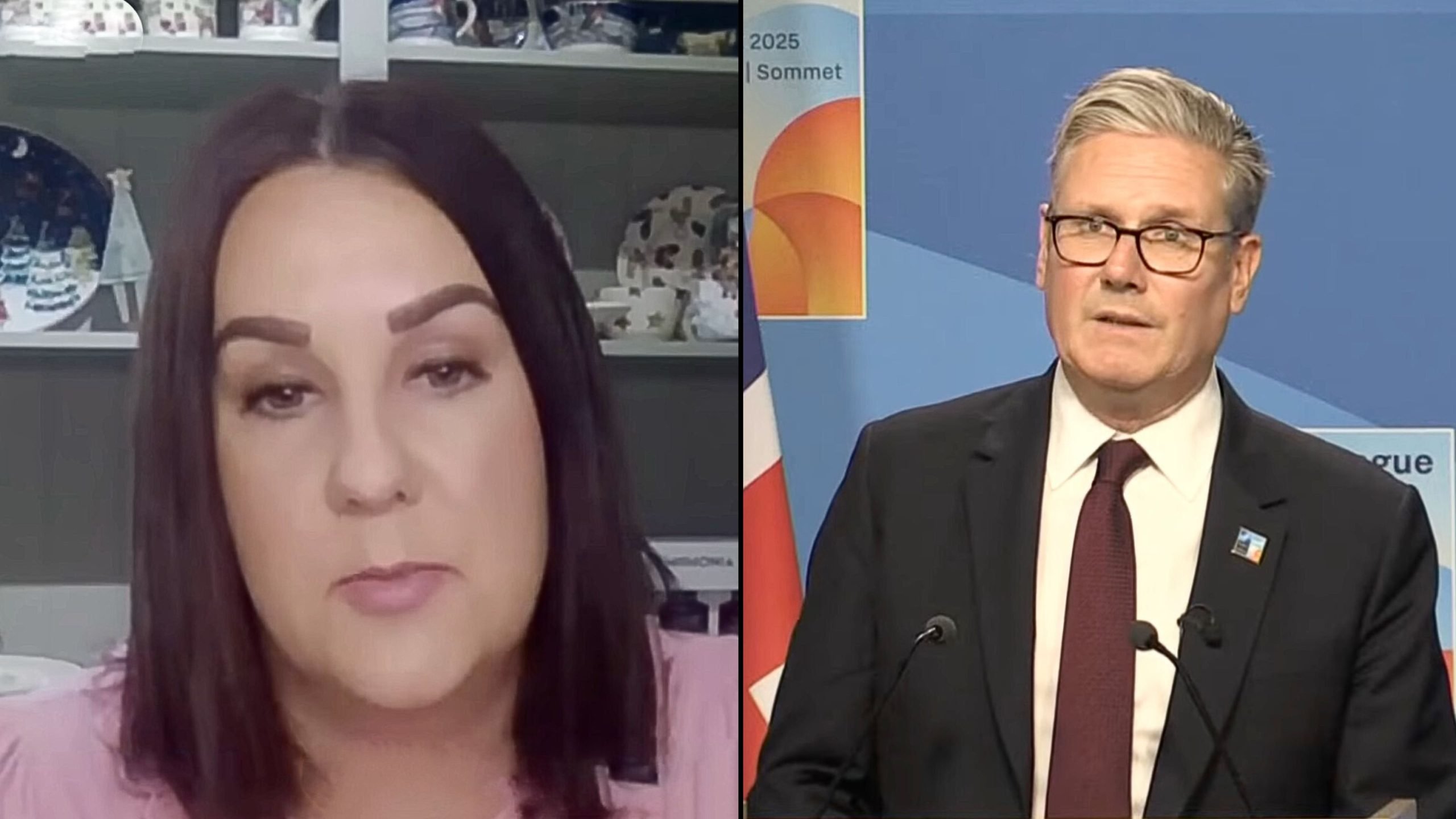Lucy Connolly, the British woman jailed in 2024 over a social media post, says senior government officials have blocked her from traveling to the United States to speak about online expression and state censorship.
The invitation came from Reform UK leader Nigel Farage, who had arranged for her to testify on Britain’s handling of speech-related prosecutions.
Connolly was released from prison in August 2025. She remains under strict supervision until March 2026 as part of the country’s highest-level public protection scheme. The ban on travel, she says, was not issued by probation officers but was directed by government officials.
“They did go straight to the top. They bypassed probation and went, you know, to the government and yeah it came back as a ‘absolutely not,’” Connolly told GB News.
She said the original plan to travel involved direct outreach to Foreign Secretary David Lammy’s office.
“I don’t know the ins and outs of what was said and what happened. I just know that I got an answer back of “it’s a hard no.”
Connolly had been asked to speak in the US about the UK’s use of criminal charges for controversial online speech.
Authorities blocked the trip under MAPPA, the Multi-Agency Public Protection Arrangements framework, a system typically reserved for individuals considered violent or sexually dangerous.
Connolly is currently held under MAPPA Level 3, the most intensive level, which places her under oversight from not only probation officers but also police, government press handlers, and other agencies.
Under the terms, she must request approval for any public appearance and is monitored in her daily life.
“I’m a MAPPA level three. I don’t know if you know what that means, but sex offenders and terrorists get put on MAPPA level three,” she said.
“So I’m not just answerable to probation… I have to ask them permission to do everything.”
Since her release, she has been denied permission to travel internationally and must seek formal clearance for any public engagement, including, she says, observing a parliamentary debate on whether prison is an appropriate response to social media offenses.
“They use the excuse of, well, it’s because of the press interest, you’re high profile with the press,” she said.
Connolly believes the monitoring has less to do with risk and more to do with optics. Her case, she says, has become politically inconvenient.
“You’re basically chucked in the same bag as sex offenders and some of the worst people in society, all because of that tweet,” GB News reporter Ben Leo told her. She replied, “A hundred percent.”
She also described being questioned by authorities over unrelated press attention, which was flagged internally as a concern. The incident, she said, was “something and nothing,” but was treated as a serious issue “because it’s me.”
Connolly says the government’s posture on speech no longer reflects a free society.
“We don’t have free speech,” she said. “We have free speech as long as your political opinions and your political views align with the current government.”
Her comments echo warnings from civil liberties advocates and legal observers, who argue that the UK’s laws around speech and public order are being used to enforce ideological boundaries through prosecution and surveillance.
“If there’s consequences to that speech, it’s not free speech,” Connolly said. “You can’t police free speech…It’s not free then, is it?”










